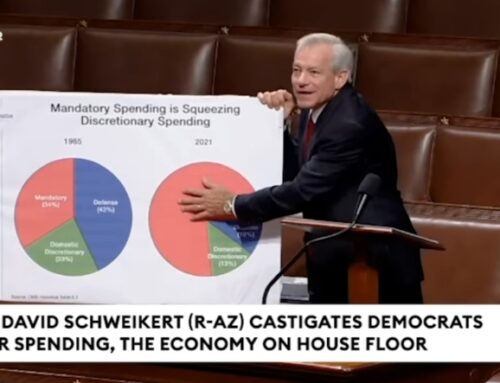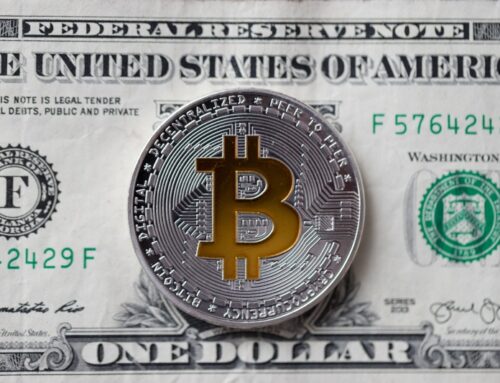Or are they bankrupting us?
To me, those seem to be the only two choices. Here’s why. And, by the way, if you’re home’s being foreclosed on, keep reading. This is not investment advice, and I am not a lawyer.
A home mortgage is essentially a string of payments made over time. From an investor’s perspective, it is a cash flow stream. Back in the day, mortgages were issued by local banks to local folks, and the bank would keep the mortgage on its books. The bank had an interest in the property that was discharged when the mortgage loan was paid in full. Because the bank carried the loan on its own books, it had a direct interest in the creditworthiness of the borrower, and the bank took some pains to ensure that the borrower was worthy, the property was correctly and reasonably valued, and the paperwork was completely in order.
But we’re much smarter than that now. You see, those cash flow streams looked really juicy to Wall Street. And that’s how the “securitization” of mortgages began. Let’s take a few thousand mortgages and bundle them together into a “mortgage-backed security” (MBS). This was supposed to actually reduce risk; since only a very small percent of mortgages ever defaulted, if you held a thousand of them the chances of your suffering significant losses was very small. Because the pool of mortgages was large, though, the MBS were expensive and you’d have to buy them with an investor group. This means the mortgages are now jointly held, clouding somewhat the individual investor’s right to foreclose if you were to default on your mortgage. After all, who really owns your mortgage?
In an effort to preempt this problem, a new company was formed: MERS, Mortgage Electronic Registrations Systems, Inc. MERS would be listed as beneficiary on Deeds of Trust. MERS would (allegedly) have standing in court to foreclose on you if you stopped paying your mortgage. They would do this in the name of the joint holders of the MBS that your mortgage has been securitized into.
This system was wildly popular with investors. Alan Greenspan’s Fed was in the process of blowing a credit bubble to fight off the 2001 recession, and money was flowing like water. Greenspan was holding interest rates at historic lows. Banks were borrowing short and lending long, the (self-destructive) thing that they do best. Home mortgage rates were crazy low, everyone was buying, and home values kept climbing. There was so much demand for MBS on Wall Street that mortgage shops started springing up that gave out half million dollar mortgages to anyone who could fog a mirror. Well, that might be an exaggeration, but it is safe to say that lending standards dropped. Loans were given out without verifying income of borrowers. Loans were given out that contained ballooning payment plans. Appraisers were allegedly pressured to “bring in” appraisals at the desired values. But the MBS that contained all of these loans were still rated AAA. Something had to give, and something did, in August 2007.
Fast forward. Home prices declined rapidly. The economy collapsed. People stopped paying their mortgages in record numbers, owing to three problems: one, people who’ve lost their jobs usually can’t make mortgage payments; two, many of these borrowers were never creditworthy in the first place. Three, with home prices falling, many homeowners soon learned they were “upside-down” in their homes; they bought at bubble prices, but now owed more on them than they were worth on the now-depressed housing market. Many of these homeowners simply decided to default rather than pour money into a hole.
OK. Now it’s time to foreclose. Someone has to file the appropriate paperwork in a court of law in the proper jurisdiction. Here’s where the trouble began in earnest:
– In order to foreclose, the foreclosing party must have “standing” in court to do so. Traditionally, this standing was granted to the holder of the actual note signed by the borrower. Which raises the question: if your mortgage has been “securitized,” who holds the note?
– The blizzard of foreclosures overwhelmed the system. Foreclosure mills allegedly filed paperwork en masse using fraudulent methods. Documents were allegedly notarized without signatures being observed as is required. Supervisors for major banks have testified they signed tens of thousand of documents attesting to the facts on court submittals without verifying the facts themselves. In other words, they (allegedly) lied to the court. In writing.
– Original paperwork has not been properly cared for through the securitization process. In many cases it has been lost or destroyed.
– MERS’ standing to file foreclosures has been challenged, and has been thrown out by the state court in Kansas.
– Kentucky homeowners have filed a RICO (Racketering Influenced and Corrupt Organizations) suit against MERS, essentially claiming MERS is “organized crime by people in suits.”
- Oct. 4 (Bloomberg) — Citigroup Inc. and Ally Financial Inc. units were sued by homeowners in Kentucky for allegedly conspiring with Mortgage Electronic Registration Systems Inc. to falsely foreclose on loans.
- “Defendants have filed foreclosures throughout the state of Kentucky and the United States of America knowing that they were not the ‘owners’ or beneficiaries of the loan they filed foreclosure upon,” the homeowners wrote in their complaint filed Sept. 28 in federal court in Louisville, Kentucky.
The attorneys general in Texas and Delaware have stopped either all foreclosure actions in their states or those from many of the major banks. Florida has launched an investigation.
Next installment we will discuss these questions (but I’ll bet you can guess the answers):
1) If your mortgage is tied up with thousands of others in an MBS “securitization,” and you and a couple of hundred others in the MBS stop paying your mortgage, what is the MBS worth on the market?
2) If the bank cannot move forward with foreclosure because of mucked up paperwork, what is your loan worth as part of the MBS?
3) If the U.S. Dollar is backed by the Fed’s balance sheet, which is supposed to be composed of U.S. Treasuries, why are there $1.08 Trillion in MBS there? Hint: the Fed bought them to try to prop up their value.
4) Why did the Fed buy securities it knew fully well were not AAA-rated?
5) What are your U.S. Dollars worth as a result?





